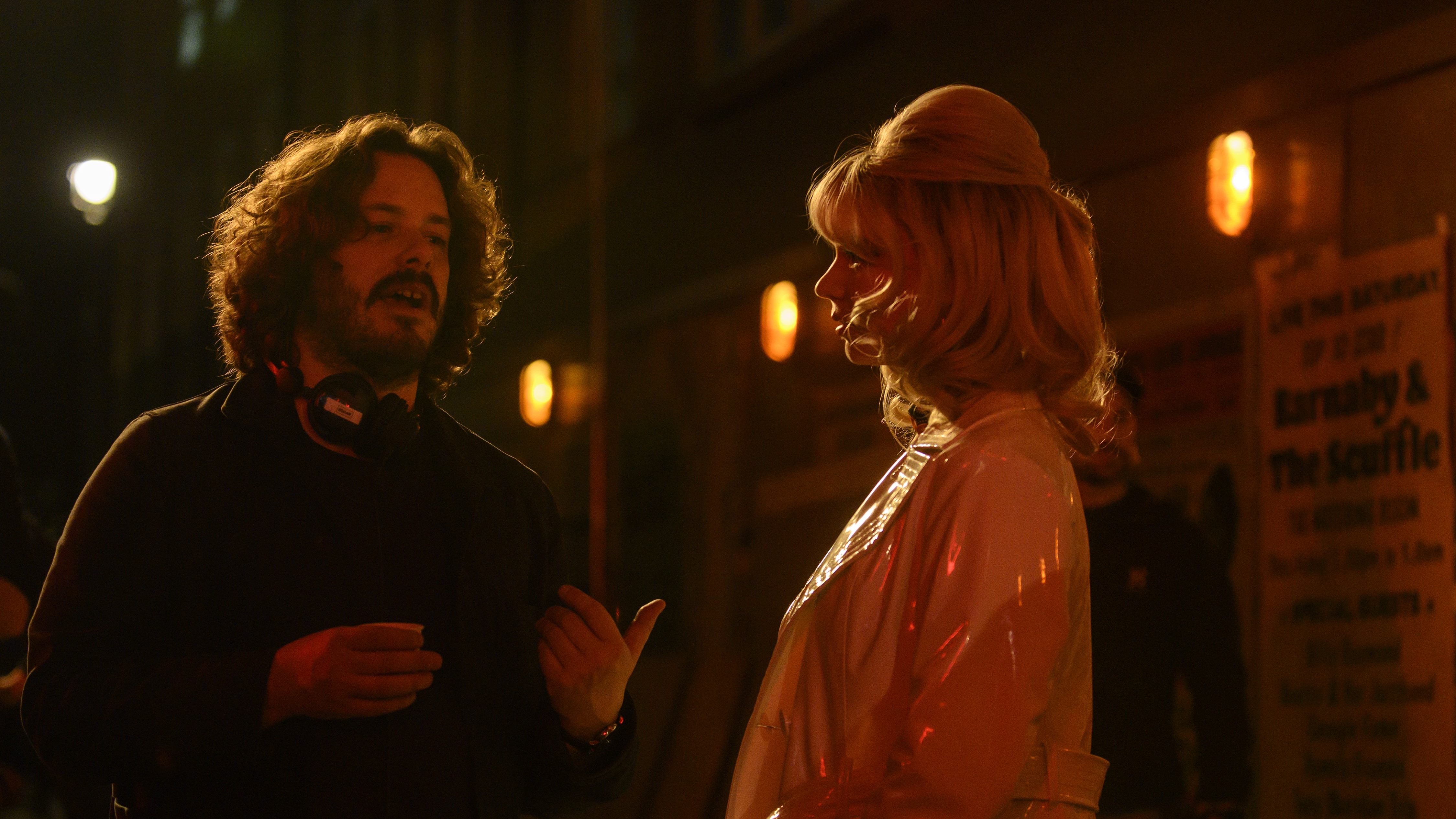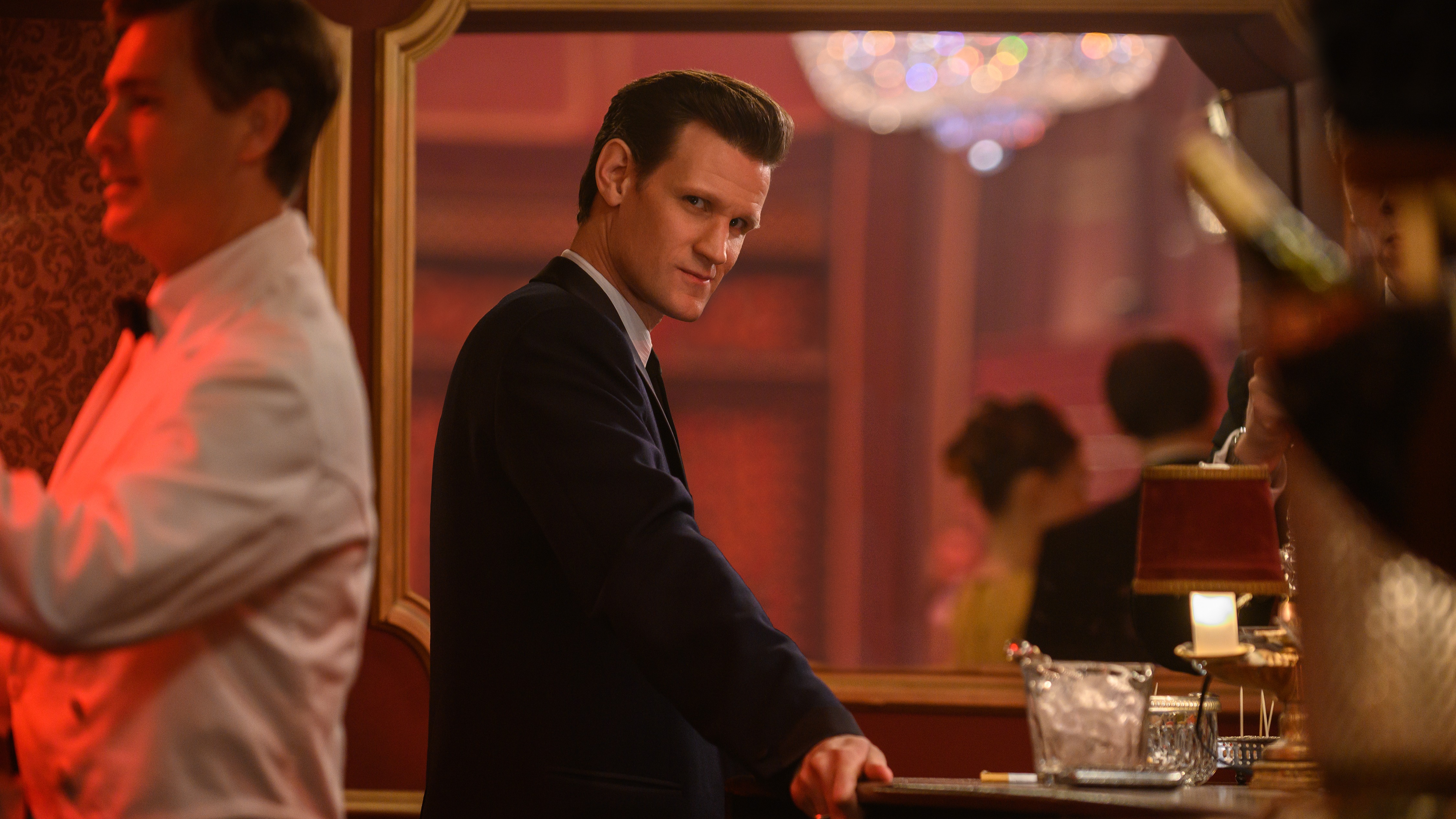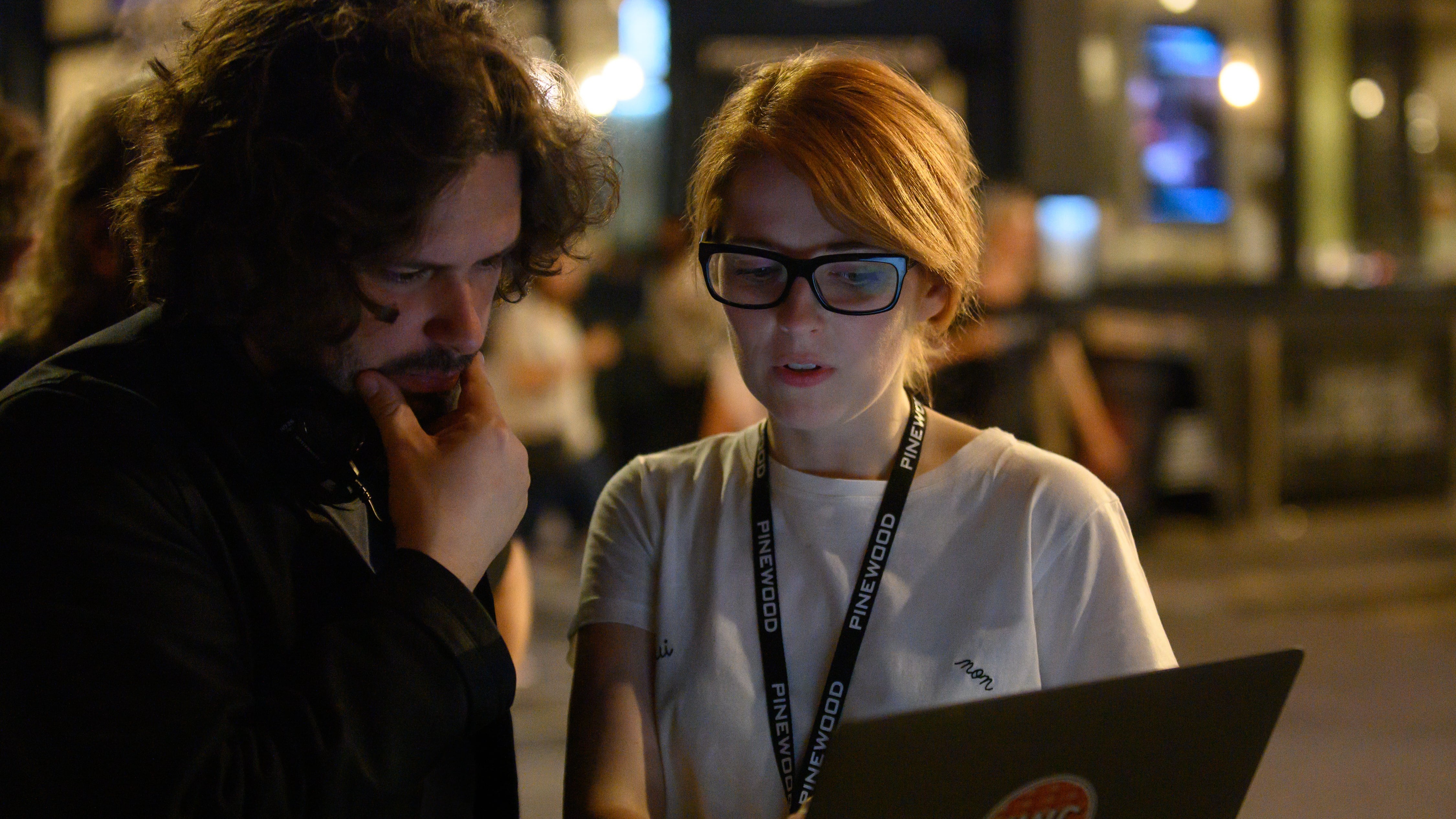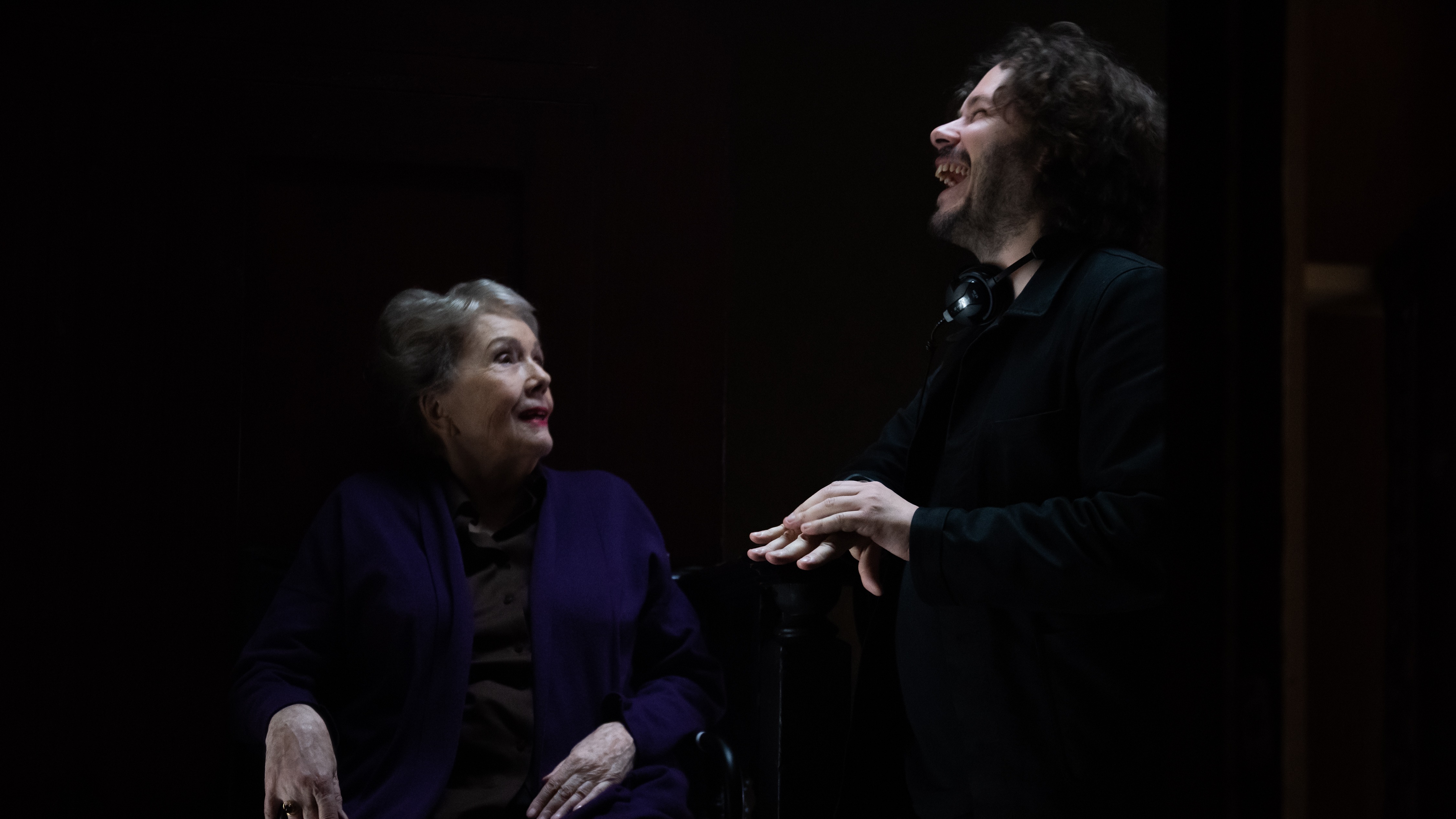Perhaps the best way to describe the experience of watching Edgar Wright’s Last Night in Soho is to say that it really does feel like spending a boozy evening in the titular London district.
That's meant as a compliment, but also a warning. This is a film that wants you to feel intoxicated by its relentless energy, one that bludgeons you with neon and nostalgia until you find yourself stumbling out of the theater as if you'd spent the last two hours not in a red recliner, but a Carnaby Street nightclub.
It’s this same dizzying energy that attracts Thomasin McKenzie’s Eloise, a gifted but naive fashion student with dreams of becoming a designer, to the British capital in Wright’s latest feature. Soon after arriving, though, she begins to encounter visions of a mysterious young performer, Sandy (Anya Taylor-Joy), whose own tainted dreams reveal the city in a far more sinister light.
Ahead of Last Night in Soho’s release on October 29, TechRadar sat down with its director to talk inspirations, creative responsibility and the dangers of excessive nostalgia.
- These are the biggest new movies coming to theatres in 2021
“The point of the movie is about perception versus reality,” Wright tells us over Zoom. “It’s powered by the idea that going back to the 60s will solve everything, because everything was great then and nothing was bad – when in truth, there wasn't a decade like that. It’s about the danger of romanticizing the past.”
Wright is referring to the central premise of Last Night in Soho, which finds its young protagonist whimsically imagining (or so we think) the life of a promising stage star in London’s Soho during the swinging 60s. Taylor-Joy’s Sandy embodies all that McKenzie’s Eloise admires about the era – confidence, style, beauty – until the city’s seedy underbelly begins to betray a much darker reality.
'The good old days'
Admittedly, a psychological thriller set 60 years ago might seem a left-field choice for a director whose previous movies have concerned zombies, aliens and bank robbers, but Last Night in Soho instead marks something of a passion project for Wright.
“I’d had the idea for at least a decade before we started, and it was really a feeling brought on by two things,” he says. “One is an obsession with the 60s that started with my parents' record collection. In the days before the internet, and even having a TV in my room, I was obsessed with these records, and when you're not born in that decade, you have to piece together its legacy from the culture left behind.”

“Then beyond that,” Wright adds, “I have become very nostalgic for a time that I did not live in, and often have fantasies about travelling back to that decade. But when that fantasy is occupying a lot of your waking moments, you have to wonder whether you have a problem. That whole idea of ‘the good old days’ – what does that actually mean?”
This intrigue into an alluring but unfamiliar era would go on to provide the moral dilemma at the heart of Last Night in Soho – its tug-of-war between fact and fiction. Wright himself admits that the real-life accounts of women like Sandy affected his rose-tinted impression of the 60s and London as a city.
The point of the movie is about perception versus reality"
Edgar Wright
“While I was making The World's End and Baby Driver, I hired a researcher who studied elements of the story through literature, film and TV," he says. "But we wanted to get a more authentic impression through testimonials from people who lived in this world. And, you know, [we learned] some incredibly sobering, harrowing stuff that we didn’t necessarily put in the movie, but it validated where the story was going.”
“All of the darkest stories you can imagine have already happened. Some of those we know about, while some of those have already gone to the grave. It was just fascinating and disturbing to get into, because Soho is one of those places where legends loom large, so getting to the heart of that reality was fascinating.”
Sex and the city
Without wishing to give away too much, Matt Smith’s Jack proves an antagonist of sorts in Last Night in Soho, a smooth talker who sells Sandy – and the onlooking Eloise – a hollow dream of fame and fortune. His character is one who perhaps best symbolizes the deceptive charm of London in the movie: a city which, like all others, hides dirty secrets beneath a shiny façade.

“Other people have said [this movie is] a love letter to London,” Wright tells us. “But I would call it a dark valentine. With any big city, you have a complicated relationship with it. I love London, but of course it can also be a terrible place. You can’t unreservedly love somewhere. Even Soho itself, it’s a fun place to go, but you'd have to recommend it to a tourist with words of caution.”
“So, in a way, this is me processing [my] feelings about the city: good and bad. Most of my films have contained similar elements – Hot Fuzz was a love letter to a certain place, but a damning indictment at the same time.”
That complicated relationship with the city makes Last Night in Soho one of the more reflective films in Wright’s often satirical body of work. “It's more autobiographical than people realize,” he reveals. “I went to art college. I came from Somerset to London. Even the idea of Eloise being obsessed with her grandmother's record collection is me being autobiographical.”
Naturally, then, the naivety of the movie’s protagonist mirrors, in part, Wright’s own as a young man. “Coming to the big city for the first time, it's incredibly scary if you don't know anybody, if you don't have money or connections,” he explains. “One of the things I find heartbreaking in the movie is seeing how confident and secure in herself Eloise is before she comes to London, and I was like that when I went to art college.”

“I was the king of my domain back in Somerset, and then you go to a different city and everybody seems cooler, everybody seems so much more mature and advanced. And some people never get on track with a big city, they just can't find a way to deal with it. A lot of people have had that experience.”
Bringing it home
But beyond the doom and gloom of Last Night in Soho’s horror-driven premise, Wright remains grateful to have been given the opportunity to bring yet another original project to the big screen – an experience he hopes is the aspiration of all filmmakers.
“I feel like it's my duty – a director's duty – to make an original film if you’ve got the opportunity to do so,” he admits. “There are a lot of rehashes and reboots [out there] and, you know, I watch a lot of them, but there's a point where I kind of think, ‘am I going to just repeat my childhood for the rest of my life? I don't need to see 10 versions of this.’”
I feel like it's my duty – a director's duty – to make an original film if you’ve got the opportunity to do so
Edgar Wright
The originality of Last Night in Soho wasn’t its only appeal, though – it also marks Wright’s first film for almost a decade to be set in his home country. “After Baby Driver, I had the opportunity to make this movie, and I wanted to do it precisely because it was something completely different for me,” he says. “I wanted to bring some of the things that I did in Baby Driver back home in a different location.”
But as you’d expect, transposing the frenetic energy of a heist movie into one of the busiest social districts in the world was no easy task. “Most people don't shoot in Soho for a reason, it's not somewhere that you can ever fully control,” Wright chuckles, “so what we were attempting to do on location was really ambitious – everywhere that it's shot is actually where it is.”

That authenticity of place adds a real depth to the experience of watching Last Night in Soho. For a film about the intimidating scale of a big city, its creaky apartments, sticky pubs and narrow mews make for a surprisingly claustrophobic London, one that won’t appear unfamiliar to those who regularly walk its rain-soaked cobbles.
“One of the real things driving me to make the movie was the idea of shooting in Soho itself,” Wright says. “And, to be honest, if [the studio] had said we can't shoot in Soho, I probably wouldn't have made it.”
A final bow
Getting to tell this story in this location evidently proved a special experience for the director – but he reveals one last privilege for which he remains immensely grateful.
Filming on Last Night in Soho wrapped just weeks before the passing of the late Dame Diana Rigg, who stars in the movie as Eloise’s landlady, Miss Collins. To speak further on her role would risk spoiling the plot, but Wright is keen to sing the praises of Rigg’s peerless talent and calming influence.

“I mean, what a joy,” he says of the Game of Thrones and James Bond alumni. “I could be sad about her no longer being with us, or I could just choose to be happy and feel grateful that I got to work with her at all. All of my memories of Diana are like happy family memories. Even the last time I saw her, essentially on her deathbed, she was so funny, so sharp, she had me howling with laughter. That's the Diana I remember.”
“She was magnetic and hypnotic,” Wright concludes, “and working with her was one of the proudest moments in my career.”
Last Night in Soho, then, is far from just a stylish horror-thriller about the city of London – it’s the final bow of a beloved actor who built her century-hopping career on its most famous stages. McKenzie, Taylor-Joy and Smith are all equally brilliant in Wright’s latest picture, but it’s Rigg’s enduring ability to surprise that will make it worth the ticket price.
Last Night in Soho lands in theaters globally on October 29
- These are the new horror movies coming to theaters in 2021
No comments:
Post a Comment